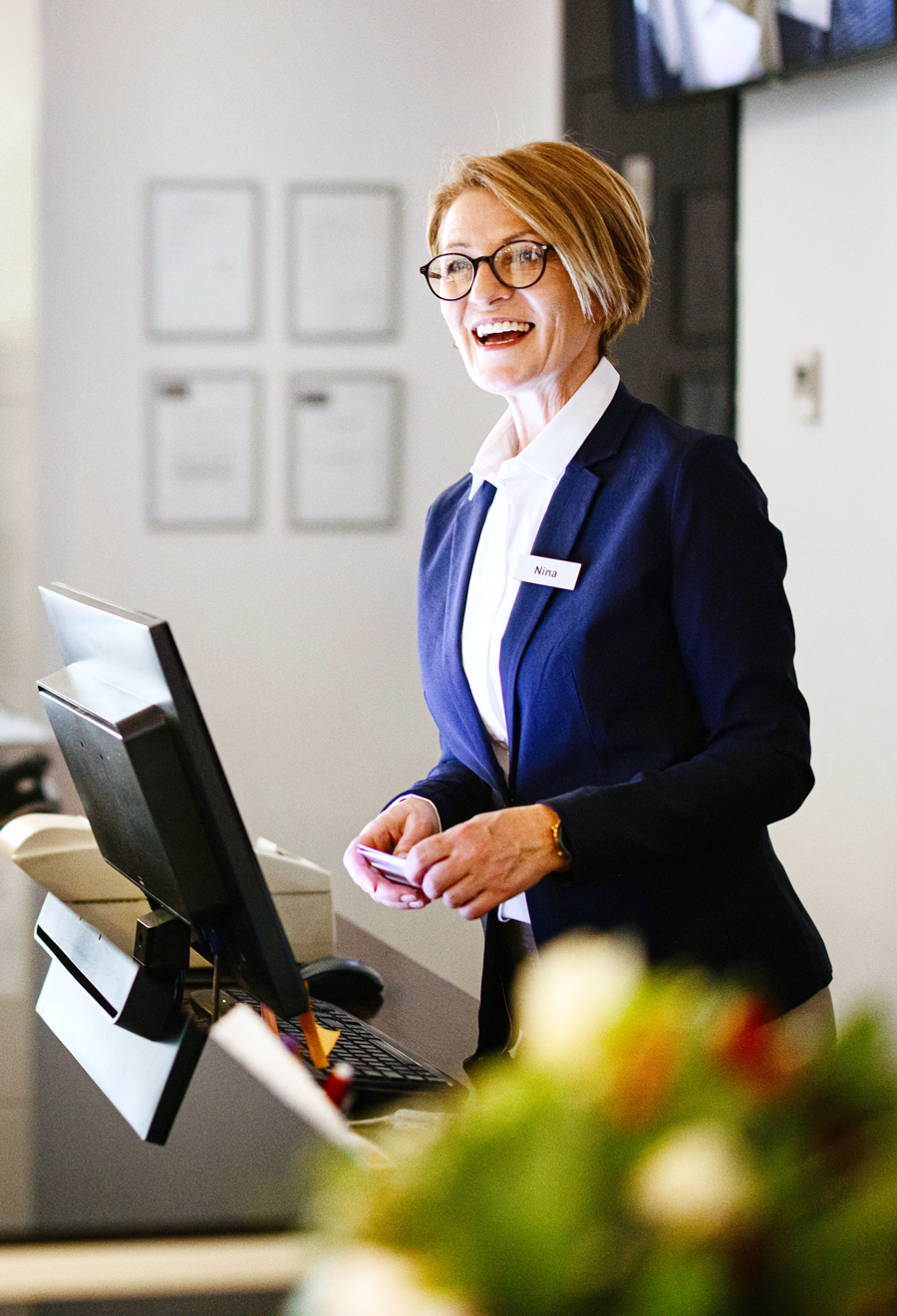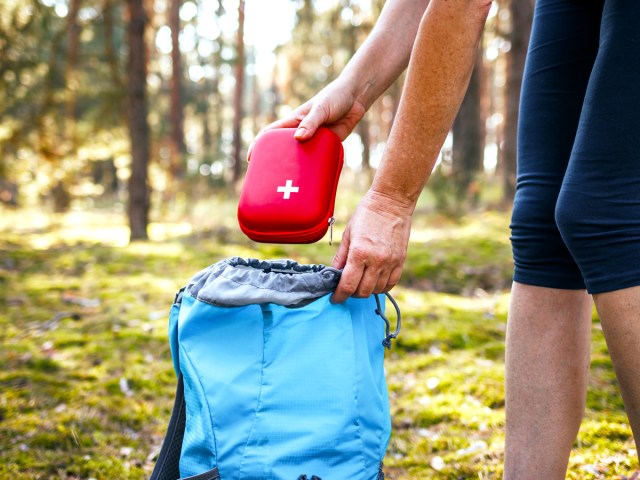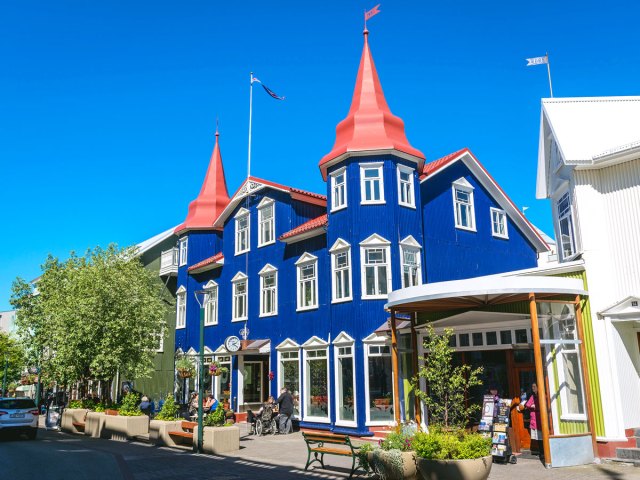The hotel industry is full of surprises. On a surface level, hotels and resorts provide guests with a relaxing respite, a memorable family vacation, or a home away from home during a business trip. But under the surface, the inner workings of a hotel are much more complicated, with staffers balancing guest safety, security, comfort, special requests, and more. To keep these well-oiled machines running, hotel staffers simply can’t explain every detail to their patrons — but that doesn’t stop curious travelers from wondering. We reveal seven hotel industry secrets, according to hospitality workers and travel experts.
There Are Safest and Quietest Floors
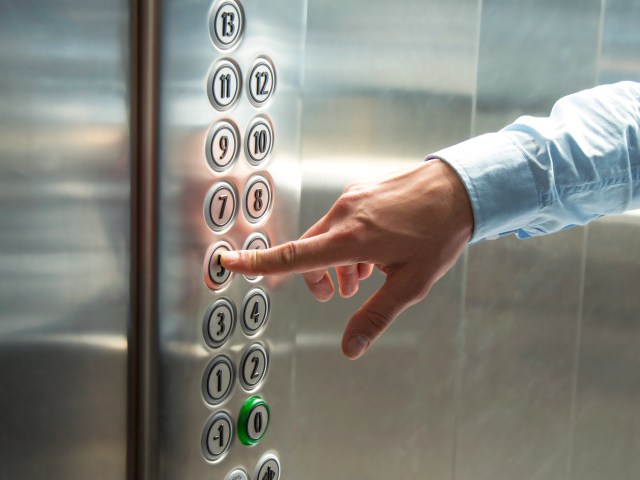
Some hotel guests want the quietest floor possible, while others want to be on a lower floor closer to the action. Fortunately for some, the quietest and safest floors actually overlap. According to industry safety experts and the U.S. Department of State, the third through sixth floors of hotels are generally the safest.
The first two floors are susceptible to break-ins and street-level threats, and the highest floors of hotels also come with risks. “Generally, fire departments in major cities have aerial ladders that can reach six to seven stories,” travel safety expert Kevin Coffey explained to Smarter Travel.
Staying within the third- to sixth-floor range ensures optimal safety, but on these floors you’ll often enjoy some peace and quiet, too. Most hotel guests want to stay on the first or second floors, closest to the lobby and amenities, so the upper floors are quieter. If you don’t mind a slightly longer elevator ride, you’ll likely have fewer neighbors on your floor and a better chance of uninterrupted sleep.
Most Big Brand Hotels Are Franchised

You may have noticed that your past travel experiences have varied by establishment, even if the hotel brand is the same. This is because most — up to 80% — of hotels in the U.S. are franchised. “They’re just a logo rental business,” Curtis Crimmins, founder of hotel startup Roomza, told The Washington Post.
Despite having a name like Hilton or Marriott, these hotels act more like independently run businesses because day-to-day operations are up to the franchisee, not the brand. While the brand imposes specific standards, ultimately all decisions are made by the owner. This can cause discrepancies within brands, so don’t be too discouraged if your trip doesn’t go to plan, even though you booked with your favorite hotel brand.
Hotels Track Details About Guests
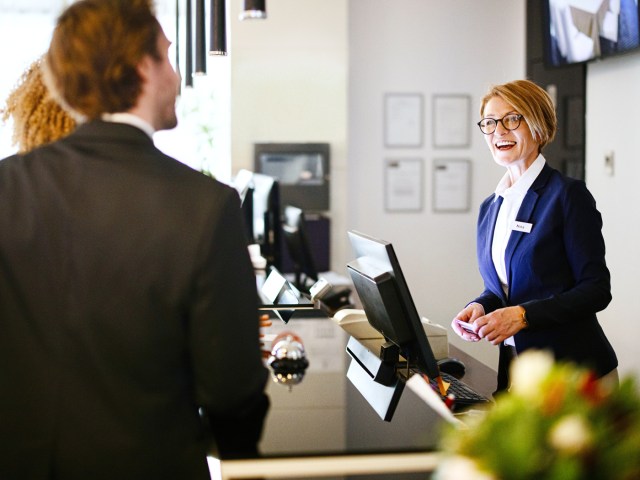
Some hotels track details of guests’ stays, which can be accessed across the brand server and seen by other hotel staffers in that chain. These observations go beyond basic identifiers such as name, contact information, and transactions with the hotel. The list might include your room preferences, spa visits, communication preferences (phone or email, for example), details of interactions with staff, and previous ratings or surveys you completed. While some customers may find this intrusive, these guest profiles can come in handy for enhancing your experience during your stay.
According to one former employee on Reddit, some luxury hotel brands are known to keep track of more personal information, such as your favorite cocktail, your anniversary date, how many extra towels you requested, and more. Access to this personalized information can create a more tailored experience, but beware — they can also keep track of bad behavior this way, including broken items or rude encounters.
Third-Party Sites Don’t Show All Available Rooms

Many travelers have faced the disappointment of a sold-out hotel. But if you’re booking through a third-party site such as Expedia or Booking.com and see a “sold out” notification, check the hotel’s website or call them. Typically, hotels release a certain number of rooms to third-party booking sites, and once those are reserved, it will show that the property is sold out, even if it isn’t.
If that isn’t reason enough to book directly, there’s also this: Hotels tend to keep their best rooms off third-party sites and on their own websites for booking, while third-party sites can often get the smallest or most basic rooms.
During check-in, hotel staff can also see if you booked directly or through a third-party site, and direct bookers might have an edge in getting a better room in terms of views, size, amenities, or recent updates, etc.). “Within any category of rooms there will always be some that are more desirable than others,” explains seasoned traveler and innkeeper Yvonne Martin. “Most front desk managers like to save those rooms for their preferred customers, which in order of preference would be those in the hotel loyalty program, repeat guests, longer-stay guests, and those who booked direct.”
Guests Leave Behind Surprising Items — And Employees Can Claim Them
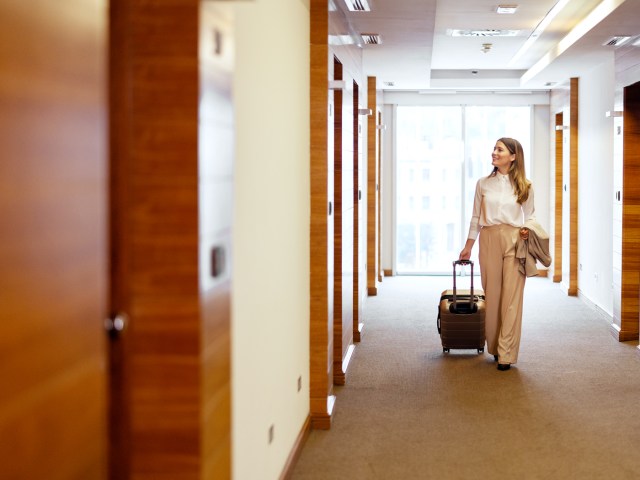
A recent survey of more than 400 hotels worldwide revealed the strangest items hotel staffers found after guests checked out. Some lost items were reunited with their owner, while others were not. At the top of the list was a Hermes Birkin bag and a watch worth $6 million. But not all forgotten items are designer: Staffers have cited a rice cooker, car tire, blender, construction pipes, and even a pet lizard (later reunited with its owner).
What happens to these items? If left unclaimed, they go to lost-and-found for a set amount of time and are later disposed of. One former employee of a major hotel brand explained to Business Insider that, after 90 days, lost-and-found items were made available to hotel staffers to take home. This policy varies by hotel, but some employees have collected a few gems thanks to this practice.
Your Throw Pillows and Comforter Are Probably Filthy
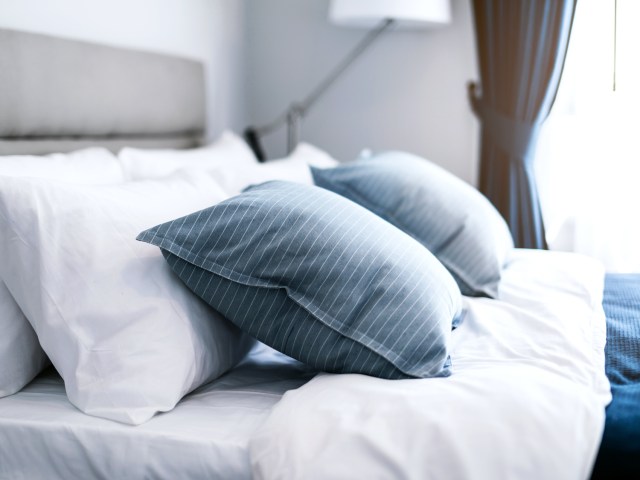
A recent viral report by Inside Edition revealed the dirty truth about rooms at three major hotel chains in New York City. Spoiler alert: None were cleaned as well as they should’ve been. Common culprits included high-touch points such as faucets and remote controls, but one of the worst offenders was bedding. Do they wash the comforter after every guest? According to those in the know, some hotels don’t.
Because of this, it’s best practice to avoid all fluffy textiles in hotel rooms — comforters, quilts, decorative pillows, and even fabric couches. None of these items are washed as regularly as sheets, towels, and duvet covers. Throw pillows are among the dirtiest items because they are often put on the floor or the couch and not washed between guests.
“It depends on the hotel brand,” Ben Pundole, executive vice president of brand culture and experience for Public Hotel, explained to The Washington Post. “I know for a fact that some hotels are more thorough than others.” If you have concerns, check the hotel’s cleaning policies or ask the staff.
Lots of People Might Have Access to Your Safe
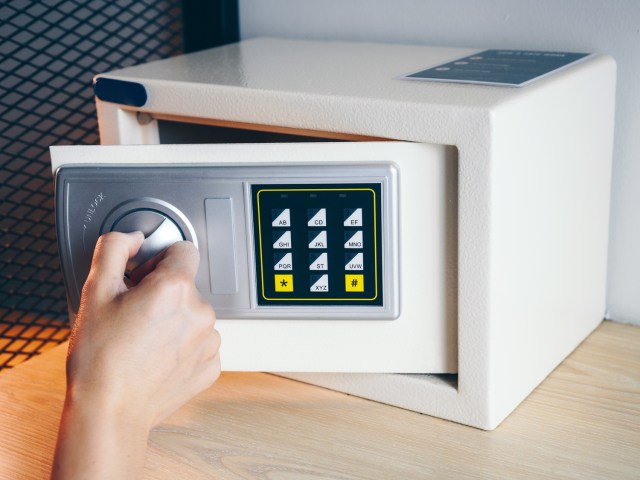
It’s travel safety 101 to leave your valuables in the hotel room safe. Unfortunately, it’s not always that simple. According to the locksmiths at Great Valley Lockshop, hotel safes aren’t as secure as you think. Nowadays, hotel safes are electronic, and guests can set personalized codes. However, all safes have a mechanical key or master code that the hotel manager or security can access.
Hotel policies prohibit staff from going through a safe without the guest present, but this doesn’t mean that these tools can’t be used for the wrong reasons. Anyone with access to them could steal your belongings — although it’s rather unlikely.
Another consideration is that potential thieves could figure out the master code of the safe because they are sometimes very obvious. Before leaving your valuables inside, ensure that basic codes such as “000000” or “123456” don’t work. If this unlocks the safe, others can easily crack the code, too. Ask management or security to reset it. If that isn’t possible, you should leave your valuables elsewhere, such as in a locked suitcase, a portable travel safe, or in the bag you’re taking with you.
Note: All featured products and deals are selected independently and objectively by the author. Daily Passport may receive a share of sales via affiliate links in content.
More from our network
Daily Passport is part of Optimism, which publishes content that uplifts, informs, and inspires.






